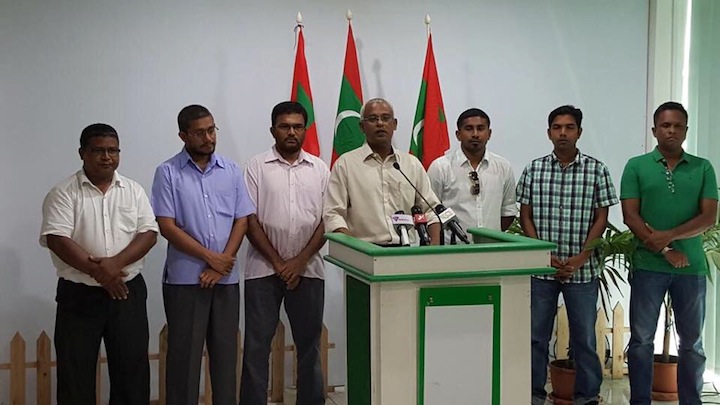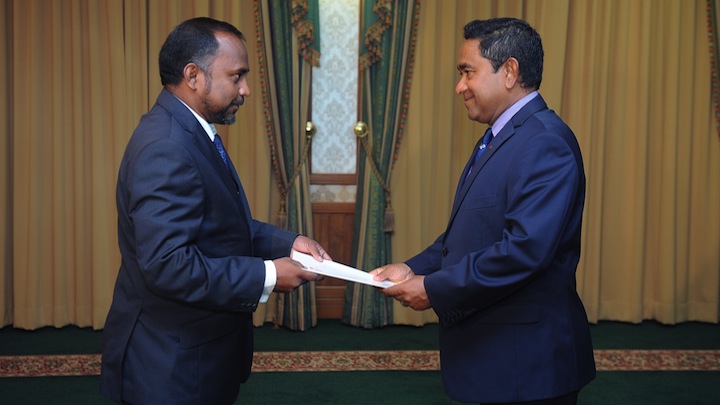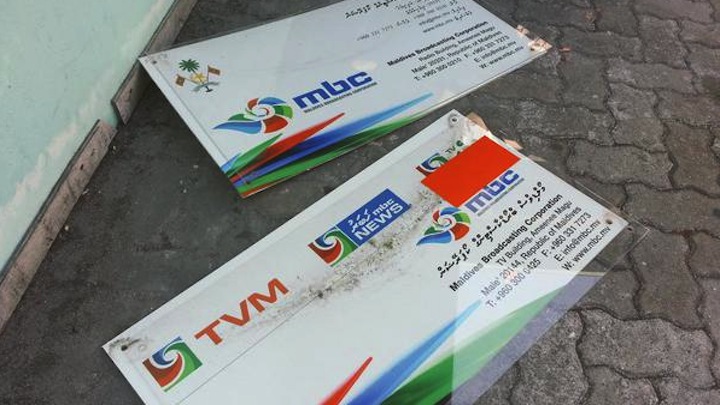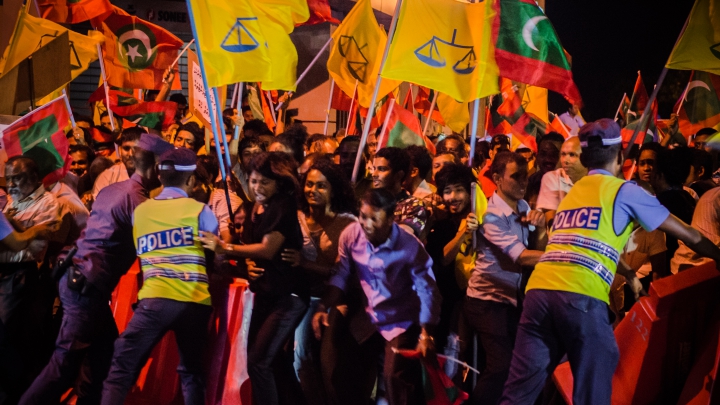The opposition ‘Maldivians against tyranny’ alliance will discuss President Abdulla Yameen’s invitation to hold talks for the “stability and benefit of Maldivian citizens” at a meeting tomorrow.
“There will be a steering committee meeting of the opposition coalition tomorrow. We will decide then,” main opposition Maldivian Democratic Party (MDP) vice president Mohamed Shifaz told Minivan News today.
Shifaz had previously said the MDP will accept the president’s invitation only if imprisoned ex-President Mohamed Nasheed and MDP chairperson Ali Waheed could represent the party.
The Adhaalath Party (AP) also demanded the release of the party’s leader Sheikh Imran Abdulla as a condition for participating in the talks.
However, Jumhooree Party (JP) leader Gasim Ibrahim welcomed the president’s appeal for dialogue.
The AP leader, MDP chairperson, and JP deputy leader Ameen Ibrahim were arrested in the wake of a mass anti-government demonstration on May 1 along with nearly 200 protesters. They were accused of inciting violence against the government.
Last week, the tax authority froze the bank accounts of several companies owned by Gasim, while the criminal court reportedly issued an arrest warrant for the JP leader the following day. The business tycoon is accused of funding the May Day rally.
The opposition alliance meanwhile continued its activities with a rally on Thursday night and a protest march in Malé on Friday. The allied opposition parties have been protesting since February, calling for the release of former President Nasheed and former defence minister Mohamed Nazim.
President Yameen had initially rejected the opposition’s calls for dialogue to resolve the political crisis, insisting that he cannot interfere with the judiciary and urging the pair to appeal their sentences.
President’s office spokesperson Ibrahim Muaz Ali told Minivan News last week that the government’s stance has not changed and that discussions can only be held on “lawful demands.”
Asked if the president’s office was ruling out negotiations on Nasheed and Nazim’s release, Muaz said the government has not set an agenda or a representative for negotiations, but reiterated that talks can only proceed on “demands the president can meet.”
Speaking at Thursday night’s rally following his release from police custody earlier in the day, Ameen Ibrahim said President Yameen is “miscalculating” by imprisoning opposition leaders and protesters.
The president believed the opposition’s mass gatherings on February 27 and May 1 have failed, but the alliance’s resolve has not weakened and will eventually “emerge victorious”, he said.
Both Ali Waheed and Imran urged supporters to remain steadfast and continue protests against tyranny and injustice, Ameen said.
Ameen said the three opposition parties will jointly propose rules or conditions for talks with the government, but did not reveal any details.
The opposition alliance has also accused the government of illegally imposing restrictions on the constitutional right to freedom of assembly after the police announced that the opposition must obtain prior permission before holding a protest.
Since the May Day demonstration, the police have cracked down on opposition street protests by briefly detaining key figures.
On Thursday, the police banned the use of four-wheeled vehicles in the opposition’s protests without prior permission. The step was necessary after a lorry drove through police lines at high speed during the May Day protest, police have said.
The opposition frequently uses lorries and pickups at protests to hold speaker systems, and for public announcements during the day.
Following the ban on vehicles, the opposition alliance used a handcart to carry the sound system during Friday’s protest march. Senior members of the allied parties took turns dragging the cart across the capital.






